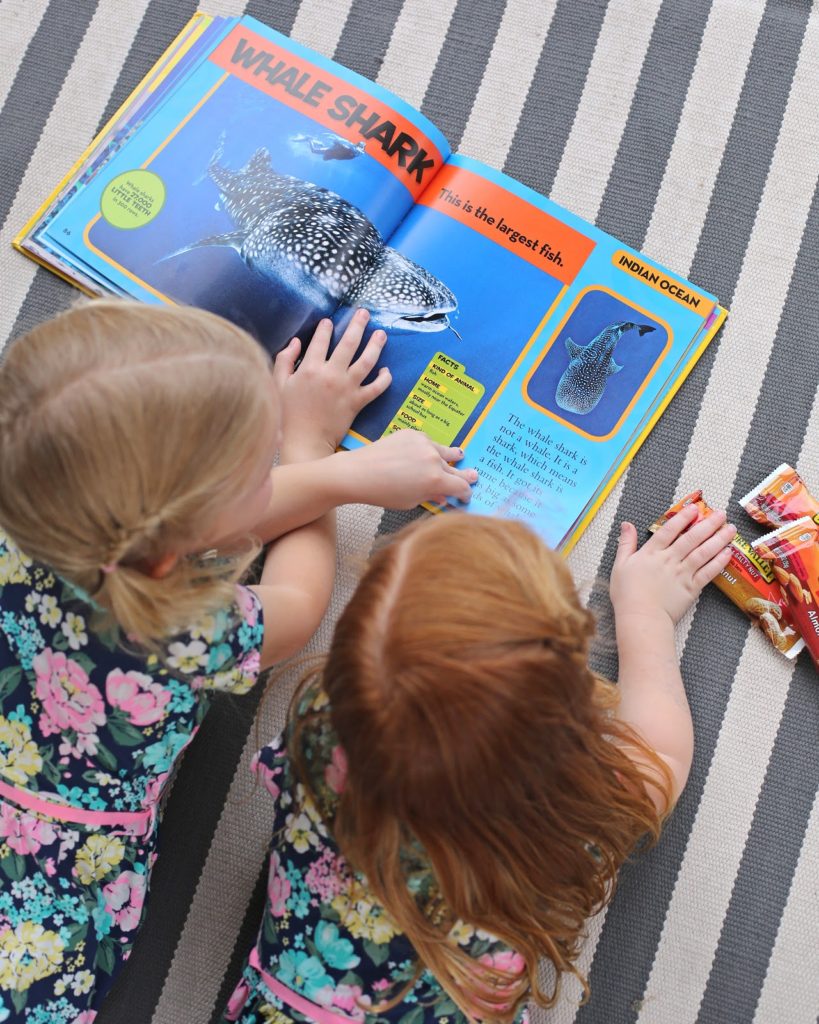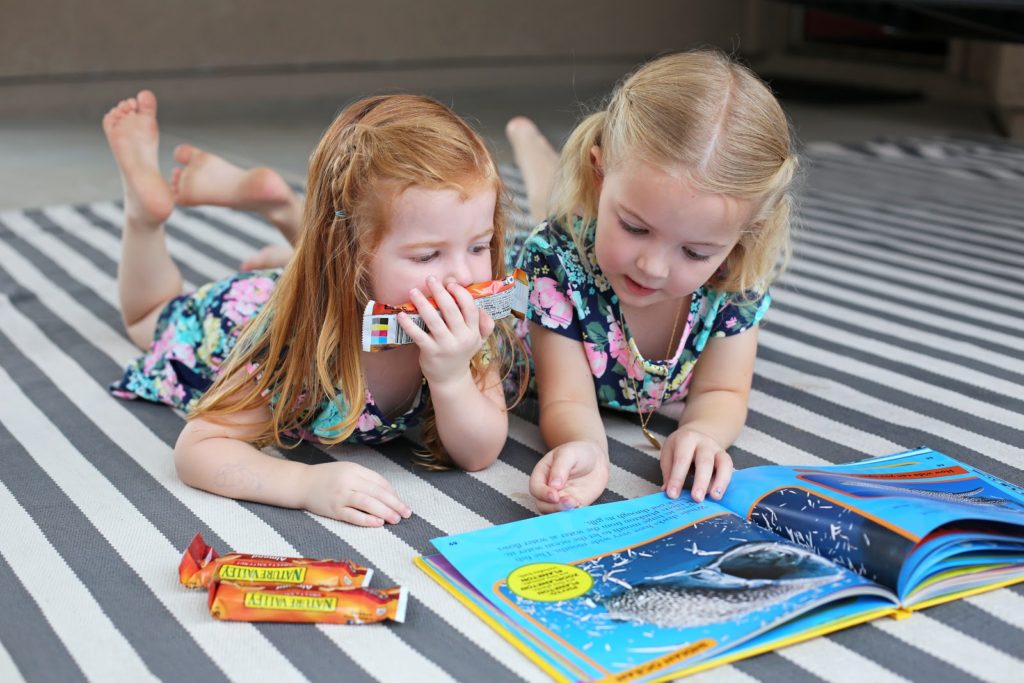With school now in full-ish swing for us, education is top of mind for me right now.
Education has been a hugely important part of my life for as long as I can remember, and I’m highly motivated to help my children discover a love of learning and give them as many opportunities to stretch their minds as I can.
And because learning doesn’t only happen in the classroom, here are a few simple ways to weave education into the daily routine that have worked well for our family over the last few years.
Easy Ways to Incorporate Daily Learning
- Add non-fiction books into your reading routine. I’ll admit that I almost always pick fiction picture books for the girls, but I’m trying to be more thoughtful about including non-fiction books in our rotation. They love any books about animals, and recently we’ve enjoyed books about space and ancient Egypt. And I’ve always thought a juvenile non-fiction book was a great way to get a succinct overview of a topic without a million footnotes or terminology you don’t understand.
- Keep educational CDs in the car. About five years ago, I bought a copy of Singin’ Smart, a CD I remembered from my own childhood. It has catchy tunes with the names of all the states, the state capitols, the U.S. presidents, the branches of government, the solar system, the major bones of the body, and more. I hadn’t listened to it in nearly twenty years, and yet immediately the songs came right back to me, word for word, (helped by the fact that I have sung the songs in my head hundreds of times over the years to come up with a state capitol name or the order of certain presidents), and now my girls know pretty much all of them, without me making any effort at all. Bart tends to NOT be impressed by these kinds of songs, but after a few listens he said, “These are actually very catchy tunes.” Makes hitting every stoplight on the way to the grocery store a little more bearable.
- Keep a map visible. I grew up totally solid on my U.S. geography and pretty strong on Central and South American geography, but I’ll admit that my European and Middle Eastern geography is considerably more shaky (okay, more than shaky). Whether it’s on the wall or on plastic-coated placemats, it’s nice to be able to point out locations around the world as you talk about them, whether they come up when you’re talking about world events or planning a vacation.
- Do simple mental math problems on the go. Bart started this years ago and now all my girls are always asking us to make up math problems for her. It’s a great way to help her practice new math skills as she learns them, plus it’s easier than trying to remember stories about when I was little (their other favorite thing to ask when we’re driving in the car or I’m making dinner). Just don’t ask Ella to give YOU a math problem, because it will invariably be so long and complicated that you’ll need some scratch paper and a calculator.
- Check out some educational podcasts. Podcasts are such consumable and enjoyable ways to learn something new and there are so many great ones for kids! Try Tumble (a science podcast for kids) or Good Night Stories for Rebel Girls or Wow in the World.
As always, if you have other suggestions for how to make daily learning a natural part of your family environment, I’d love to hear them!


I love Singin Smart! I grew up with it, too. Did you order the CD online somewhere? I'm still using tracks I digitized from my mom's original cassette, but I'll upgrade someday!
Hey, have you ever done a list of nonfiction-type books for littles? I've never consciously made those books a part of our routine, but that's a really great idea. Just not sure where to start or what to look for! Do you have favorites?
The Cybils has a nonfiction picture book category; that's a good place to start.
We used to play math with the license plates we saw — first adding the numbers together, then multiplying them. And my kids loved playing Pokemon with the cards, which is basically an excuse for easy addition along with some pattern matching and word identification. They could count by tens when they were tiny — three? Before they were comfortable with single digit addition.
Great ideas!! I'm totally going to check out that singing smart cd after this (although I highly doubt Phil will be too into it either…)